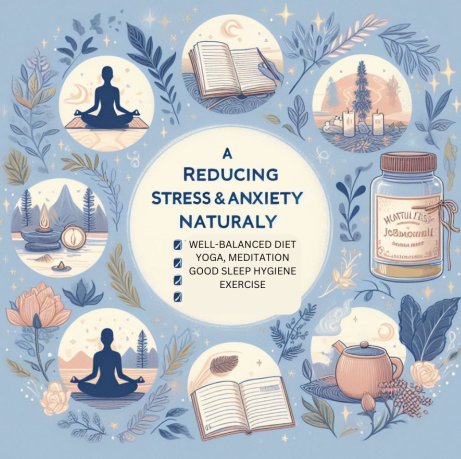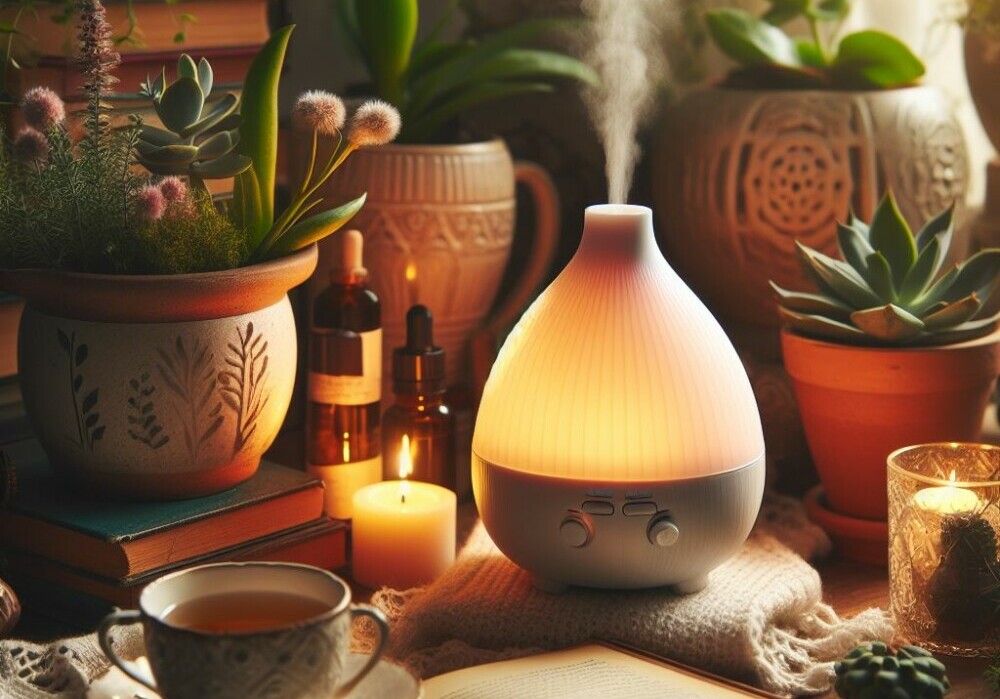Frequent questions we ask ourselves:
How to reduce stress and anxiety, or
How to reduce stress and anxiety naturally,
How to reduce stress and anxiety with…
How to relieve stress and anxiety?
If you’re grappling with multiple sclerosis (MS), stress and anxiety might be regular visitors in your life. I’m here to help you understand how these emotional challenges intertwine with your condition. Stress and anxiety not only influence your mental well-being but can also have a tangible impact on your MS symptoms. People often don’t realize that the fatigue, pain, or even numbness they feel could be exacerbated by their psychological state and mental health.
Conversations with neurologists and findings from MS research suggest that chronic stress may spur a negative cycle, possibly accelerating the progression of the disease. By paying attention to your body’s cues, you can begin to connect the dots between your stress levels and symptom flare-ups. Additionally, patient stories offer a real-world glimpse into how stress and anxiety manifest in those living with MS, grounding our understanding in lived experience rather than theory alone.
But this isn’t just about identifying the challenges; it’s also about finding pathways to better mental and physical health. In the next section, we’ll explore a variety of holistic strategies designed to manage stress. These are actionable steps that can fit into your everyday life, offering a sense of control and empowerment over your MS journey.
Strategies for Managing Stress: A Holistic Approach
 I’m going to share a truth that might resonate with you if you’re dealing with MS: managing stress isn’t just beneficial, it’s essential. Stress can have very physical consequences, particularly for MS, so a holistic strategy to tackle it can be incredibly potent.
I’m going to share a truth that might resonate with you if you’re dealing with MS: managing stress isn’t just beneficial, it’s essential. Stress can have very physical consequences, particularly for MS, so a holistic strategy to tackle it can be incredibly potent.
A well-balanced diet is your first line of defence against stress. You may be surprised to find out how much what you eat can affect how you feel. Opt for foods rich in omega-3 fatty acids, fibre, and antioxidants. They not only nourish your body but also equip your brain to better handle stress.
You’ve likely heard that exercise is important, but here’s why it’s a game-changer for stress relief. Physical activity boosts your endorphin levels, often termed as ‘feel-good’ hormones. Whether it’s a walk in the park, aqua therapy, or a session of adaptive yoga, choose something that resonates with you and your capabilities.
It’s also crucial to keep up with routine medical check-ups. Your healthcare team plays a pivotal role in your stress management plan. Regular visits can keep your treatments up to date and help mitigate any additional stressors related to your MS.
How well you sleep can make or break your stress levels. Good sleep hygiene—having a consistent bedtime routine, making your bedroom a calm haven, and avoiding blue light before bed—is key to helping you get a restorative night’s sleep.
Relaxation techniques aren’t just fads; they are backed by science. Practices like mindfulness, yoga, and meditation can train your brain to better manage stress. These techniques can lower blood pressure, reduce muscle tension, and improve mood, which is particularly valuable when facing MS.
I really hope that these strategies offer a starting point for reducing stress and enhancing your overall well-being. But remember, your first attempt doesn’t need to be your last. You can always adjust your approach down the road.
Leveraging Support Systems and Professional Help
 If you’re living with Multiple Sclerosis (MS), you’re definitely not alone, even though it might feel that way sometimes. That’s where tapping into a strong support system comes into play. Friends, family, and MS support groups can be crucial in helping you handle the daily stresses and maintain a positive outlook.
If you’re living with Multiple Sclerosis (MS), you’re definitely not alone, even though it might feel that way sometimes. That’s where tapping into a strong support system comes into play. Friends, family, and MS support groups can be crucial in helping you handle the daily stresses and maintain a positive outlook.
MS support groups, both in-person and online, provide a platform to share experiences and coping strategies. They can offer comfort, practical advice, and a sense of community that’s hard to find elsewhere. You’re going to find out about real-world tips from others in similar situations, which could be a game-changer. Numerous support groups are available across various social networks, providing ample opportunities for connection and support.
But sometimes, emotional and mental stress need a professional touch. That’s when you might consider reaching out for mental health services. Therapists specialized in chronic illnesses can work with you to address stress and anxiety’s root causes, helping you to develop tailored coping strategies.
Cognitive Behavioral Therapy (CBT) is one therapy mode that’s been shown to be particularly effective for those with MS. It helps by changing thought patterns, reducing negative thinking, and combating the mental toll of chronic stress. Talk therapy and stress management programs also serve as valuable tools.
Now, let’s talk about the effectiveness of these professional interventions. Tracking and discussing your progress with your therapist can lead to adjustments in your therapy, ensuring you get the support that resonates with you. Don’t worry if the first method isn’t a perfect fit; you can always adjust your approach down the road.
If you need help starting this journey, online databases, and local health services are valuable resources. They can point you in the direction of licensed professionals who have experience with MS patients. Remember, taking this step is not a sign of weakness but of strength and proactive care.
Navigating Treatment and Complementary Therapies for MS-Related Stress
 In my opinion, managing stress and anxiety when you’re dealing with MS isn’t just a one-size-fits-all approach. Each person’s experience with MS is unique, and so is their response to different treatments. When it comes to pharmaceutical interventions, there are options like antidepressants, anti-anxiety medications, and even some treatments that can directly modify the course of MS.
In my opinion, managing stress and anxiety when you’re dealing with MS isn’t just a one-size-fits-all approach. Each person’s experience with MS is unique, and so is their response to different treatments. When it comes to pharmaceutical interventions, there are options like antidepressants, anti-anxiety medications, and even some treatments that can directly modify the course of MS.
But don’t worry too much about feeling limited to medication alone. Complementary therapies can be game-changers for many. Think about acupuncture, which is known for its stress-relieving properties, or massage therapy, which can reduce muscle tension and promote relaxation.
Essential oils and aromatherapy aren’t just pleasant to the senses; they may also have a calming effect on the mind. Just ensure you’re choosing something that resonates with you and doesn’t conflict with your current medical treatments.
The key is to keep an open dialogue with your healthcare provider. Discuss your symptoms, your stress levels, and the impact on your day-to-day life. They can help you weigh the benefits and risks of each treatment option. Remember, your safety and wellness should always take priority.
Track your progress and side effects if you’re starting a new medication or therapy. This can help you and your doctor make informed adjustments over time. Your first attempt doesn’t need to be your last; you can always adjust your approach down the road.
So my question to you today is, which of these strategies speaks to you? Are you leaning more towards medication, therapy, or a blend of both? I really hope that this article has given you the information and confidence to take the next step towards managing your stress and anxiety with MS. Your journey is personal and your choices should empower you to lead the best life possible.
Elena
References
- Multiple Sclerosis Trust – Managing relapses
- National MS Society – Treating and managing relapses
- National Institutes of Health – Multiple Sclerosis overview
Disclaimer
This article is for informational purposes only and is not a substitute for professional medical advice, diagnosis, or treatment. Always seek the advice of your neurologist or other qualified healthcare provider with any questions you may have regarding a medical condition or treatment.
About the Author
Elena is an educator and counsellor with over 20 years of experience working with young people. She also writes about health, mindset, and life with multiple sclerosis, aiming to provide clarity, hope, and practical strategies for everyday living.


This is an excellent source for not only people dealing with the stresses of MS but stresses in general. I really liked that you offered natural ways to medicate such as a healthy diet and certain foods and vitamins, as well as essential oils. Unfortunately, our medical system pushes too much prescription medications that often have negative side effects so it’s great to get alternative and more natural ways on how to heal.
Thank you so much for your thoughtful comment! I’m glad to hear that you found the information helpful. I completely agree with you about the importance of considering natural approaches to managing health conditions like MS, as well as stress in general. It’s true that prescription medications can sometimes come with unwanted side effects, and exploring alternative options, such as a healthy diet, specific foods and vitamins, and essential oils, can offer additional tools for wellness. It’s my aim to provide a comprehensive approach that empowers individuals to make informed choices about their health. If you have any further questions or would like more information, please don’t hesitate to reach out. Thank you again for your feedback!